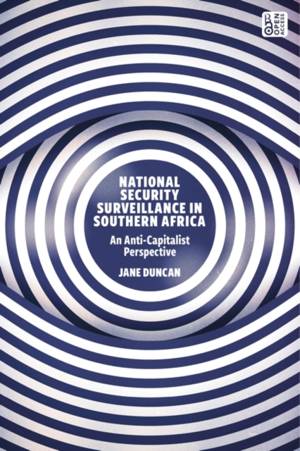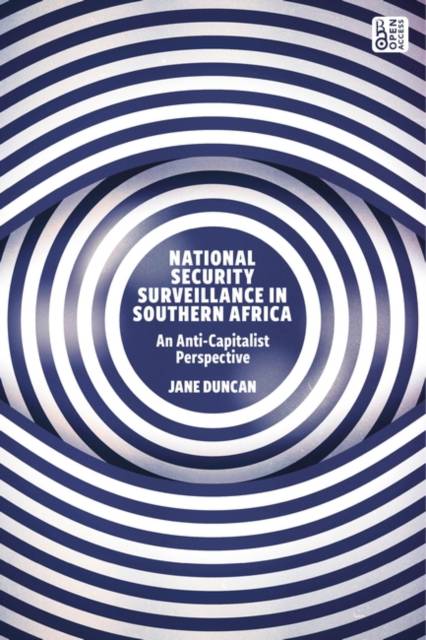
- Afhalen na 1 uur in een winkel met voorraad
- Gratis thuislevering in België vanaf € 30
- Ruim aanbod met 7 miljoen producten
- Afhalen na 1 uur in een winkel met voorraad
- Gratis thuislevering in België vanaf € 30
- Ruim aanbod met 7 miljoen producten
Zoeken
National Security Surveillance in Southern Africa
An Anti-Capitalist Perspective
Jane Duncan
Hardcover | Engels
€ 220,45
+ 440 punten
Uitvoering
Omschrijving
In spite of Edward Snowden's disclosures about government abuses of dragnet communication surveillance, the surveillance industry continues to expand around the world. Many people have become resigned to a world where they cannot have a reasonable expectation of privacy.
In this open access book, the author looks at what can be done to rein in these powers and restructure how they are used beyond the limited and often ineffective reforms that have been attempted. Using southern Africa as a backdrop, and its liberation history, Jane Duncan examines what an anti-capitalist perspective on intelligence and security powers could look like. Are the police and intelligence agencies even needed, and if so, what should they do and why? What lessons can be learnt from how security was organised during the struggles for liberation in the region? Southern Africa is seeing thousands of people in the region taking to the streets in protests. In response, governments are scrambling to acquire surveillance technologies to monitor these new protest movements. Southern Africa faces no major terrorism threats at the moment, which should make it easier to develop clearer anti-surveillance campaigns than in Europe or the US. Yet, because of tactical and strategic ambivalence about security powers, movements often engage in limited calls for intelligence and policing reforms, and fail to provide an alternative vision for policing and intelligence. Surveillance and Intelligence in Southern Africa examines what that vision could look like. The ebook editions of this book are available open access under a CC BY-NC-ND 4.0 licence on bloomsburycollections.com.Specificaties
Betrokkenen
- Auteur(s):
- Uitgeverij:
Inhoud
- Aantal bladzijden:
- 248
- Taal:
- Engels
Eigenschappen
- Productcode (EAN):
- 9780755640225
- Verschijningsdatum:
- 28/07/2022
- Uitvoering:
- Hardcover
- Formaat:
- Genaaid
- Afmetingen:
- 156 mm x 234 mm
- Gewicht:
- 526 g

Alleen bij Standaard Boekhandel
+ 440 punten op je klantenkaart van Standaard Boekhandel
Beoordelingen
We publiceren alleen reviews die voldoen aan de voorwaarden voor reviews. Bekijk onze voorwaarden voor reviews.







